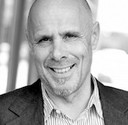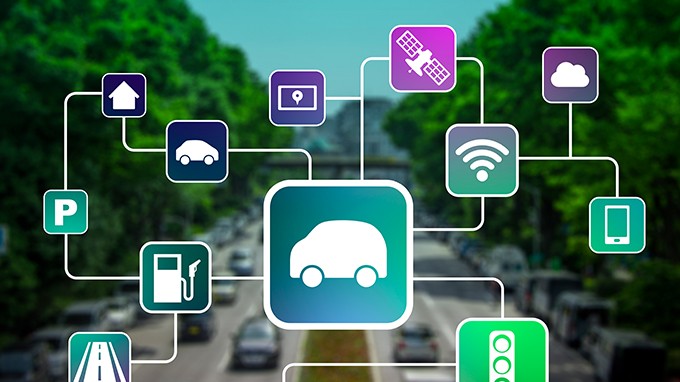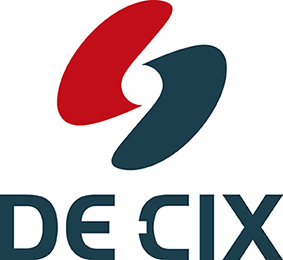Sustainable Digitalization in the Smart City
Harald A. Summa, CEO of the eco Association, explores the benefits of the Smart City and Mobility for solving the problems of increasing urbanization.

© Nelli Velichko | istockphoto.com
This article was first published in German in the compendium “Digitale Ethik – Vertrauen in die digitale Welt” in 2019 by eco – Association of the Internet Industry.
Over the past 100 years, humanity has used up the resources of its (so far) only inhabited planet at a breathtaking pace. At the same time, the world's population is constantly growing. By the year 2040, it will have doubled compared to 1980 to amount to over 9 billion people.
One characteristic of this development is continuous urbanization. From the Third to the First World, more and more people are moving from the countryside to the big cities: in 2009, 3.3 billion people were living in cities: for the first time, this was more than were living in rural areas. This is not only causing serious growing pains in the explosively growing metropolises of the Third World and the future megacities. The conurbations of the old world also face considerable ethical challenges.
Opportunities of urbanization in the smart city
However, at least in terms of sustainability, urbanization is now seen as an opportunity. In 2014, the Intergovernmental Panel on Climate Change (IPCC) determined that efforts to reduce greenhouse gas emissions in urban areas represent decisive leverage for international climate and energy policy. According to the well-known Brazilian urban planner and mayor Jaime Lerner, “The city is not the problem. The city is the solution”. The form, infrastructure, consumption styles, planning strategies, and cross-sectoral policy instruments of a city can be aligned particularly effectively with one another through economies of scale.
Cities are much more effective in organizing the distribution of goods and work routes or in providing education and culture than are settlements scattered over a large area. The current standard of living in cities can therefore be achieved more sustainably and with less natural resource consumption than in rural areas. This also applies to social facilities and medical care. These effects can potentially be multiplied in conjunction with ethically-oriented digitalization.
In order to earn the title “sustainable”, however, our cities must undergo fundamental change. So far, the urbanization dividend has been invested in rising living standards while simultaneously increasing the consumption of natural resources. An obvious example of this is the organization of transport. Although the further increase in motorized individual transport makes it possible to get from A to B faster and more comfortably, collateral damage such as congestion, noise, health-threatening emissions, and the allocation of public space to traffic requirements means that a considerable proportion of the progress made in urban quality of life is lost. This trend must be reversed by means of a sustainable municipal policy.
Smart city concepts offer answers to the challenges of urbanization. Smart cities provide forward-looking concepts for increasing efficiency and achieving economies of scale. They make it possible to reduce the consumption of resources and at the same time increase the quality of life. For the people in the city, this is not only about prosperity and mobility, but also about the social co-existence of an aging population, a healthy environment, and climate protection, as well as affordable living space. The smart city offers a wealth of approaches for sustainable municipal policy.
How the smart city is changing German mobility and sustainability
The Hanseatic City of Hamburg, for example, has equipped 11,000 parking spaces in public spaces and multi-level car parks with sensors that navigate drivers via an app directly to the nearest available parking space. Unnecessary traffic resulting from the search for a parking space, with corresponding negative environmental effects, is thus avoided. In addition, the car park can be booked directly with the app and paid for digitally.
Public transport will also change considerably – and not only in the big cities. In the Bavarian health resort of Bad Birnbach, there is already a self-propelled electric bus between the market square and the Rottal-Terme thermal spa. The bus for up to six passengers operated by Deutsche Bahn runs every 30 minutes to test it as a future means of transport. In the next step, the smart city, such a bus fleet will be controlled according to demand, which will be on the road where and when required, as passengers register via their smartphone. Just as today digitalization makes it possible to watch on demand instead of the linear television program, public transport will also operate on demand in the future instead of serving lines. In this way, the smart city combines the advantages of the motorized individual transport with the sustainability of public transport.
In addition to transport and logistics, the greatest potential is seen in the area of supply and disposal. Since 2018, the technology group Siemens has been developing a fully digitized, sustainable, and decentralized energy system for the Upper Franconian district town of Wunsiedel. In the future, the supply network for Wunsiedel is to be fed 100 percent from renewable energies, and is to be semi-autonomous and capable of a black start. All elements of energy generation are to be linked via sector coupling in order to make optimum use of them. Following investments in power and heat generation, storage, control technology, and energy efficiency, a power-to-gas or power-to-liquid plant is planned. By means of a pooling solution consisting of battery storage and electrolyzer, the public utilities of the municipality want to earn additional money on the control energy market in the future.
In Cologne and Stuttgart, the waste management company Remondis is currently testing a system for the efficient control of glass recycling. The glass containers distributed throughout the city use sensors to report the fill level to the headquarters. As a result, the collection vehicle no longer drives to empty containers. Citizens no longer have to worry about overfilled glass containers. This sustainable smart city solution reduces emissions and protects the environment.
These examples show: There are hardly any limits to the imagination concerning how the smart city can achieve sustainable effects. In the healthcare sector, the digital patient file and personal health management are revolutionary innovations of an ethically-oriented digitalization. The aging population will also increasingly benefit from smart care solutions, as demonstrated by the Smart Service Power smart care project supported by eco. Mobile health devices such as digital blood glucose meters are already available today and make diagnosis easier.
Growth in the German smart city market
Many areas such as the digitization of educational institutions are still in their infancy. This is why, according to the study “The German Smart City Market 2017-2022. Facts and Figures” published by the eco Association and Arthur D. Little, the education market segment within the smart city will grow particularly strongly with an annual growth rate of around 27 percent.
In fact, the smart city market is one of the fastest growing markets in the world, and this is also happening in Germany, as the study forecasts. Sales generated with smart city solutions are expected to more than double between 2017 and 2022 to around 43.8 billion Euro – equivalent to average annual growth of 16.5 percent. This market is highly interesting both for the Internet industry and for companies in other branches of industry.
In order to be successful in mega-projects that are already being carried out internationally, the export-oriented German economy must be able to demonstrate reference projects for corresponding products and services. Companies from different sectors must work together in the smart city ecosystem and proactively strive for cooperation.
In addition to the first existing smart city examples in German cities mentioned above, many more successful implementations will therefore be needed in the coming years. The research and innovation agenda for the future city initiated by the German federal government in 2012 could be one approach in this regard. The result is the Future City competition of the German Federal Ministry of Education and Research (BMBF). Together with citizens, academia, local politics, industry, and public administration, it is intended to help 51 cities, municipalities, and rural districts develop holistic and sustainable visions that will be implemented in real laboratories and tested in practice from 2018 onwards. It remains to be seen whether the enormous potential of sustainable smart city concepts will actually be sufficiently promoted in this long-term process.
If German cities are to rise to the position of leading smart cities internationally in the coming years, they must adopt a holistic approach and implement it without too much delay. This requires finding a coherent strategy that integrates the multitude of different smart city offerings from mobility and energy management through to security solutions with a cross-segment smart city platform as the link between all services. Given the enormous ethical importance of the question of how we shape our cities of the future, this sustainable approach must not be allowed to fizzle out in endless rounds of talks and workshops, but must now be swiftly put into practice by committed decision-makers. Time is of the essence.
Harald A. Summa has been Chief Executive Officer (CEO) of DE-CIX since 2003. Harald A. Summa is also CEO of DE-CIX International GmbH and of DE-CIX North America Inc. DE-CIX is the world's leading Internet Exchange operator. DE-CIX’s Internet Exchange in Frankfurt has the highest data throughput worldwide. Harald A. Summa is also the initiator and CEO of eco – Association of the Internet Industry.
As a co-initiator, Harald A. Summa was involved in the foundation of the European associations EURO-ISPA and Euro-IX, whose particular aim is to improve the European Internet infrastructure. Harald A. Summa was also until 2018 a core member of the Advisory Board for the “Young Digital Economy” of the Federal Ministry for Economic Affairs and Energy, which seeks to provide stimulus for the future of Germany’s digital economy and for the development of new digital technologies, and a member of the Advisory Board for the “Digital Economy” in North Rhine-Westphalia.
Harald A. Summa has been active in management and consulting in the Internet and IT industry for more than 30 years, during which time he has spent more than 20 years managing various companies. He was a Lecturer at the University of Cologne in Applied Informatics for a period of 10 years. Summa has written many specialists articles and given lectures on the topics Communication, Marketing, and Sales. Summa’s numerous publications, as well as TV and radio appearances focus in particular on the topics the Internet, security, and e-commerce.






